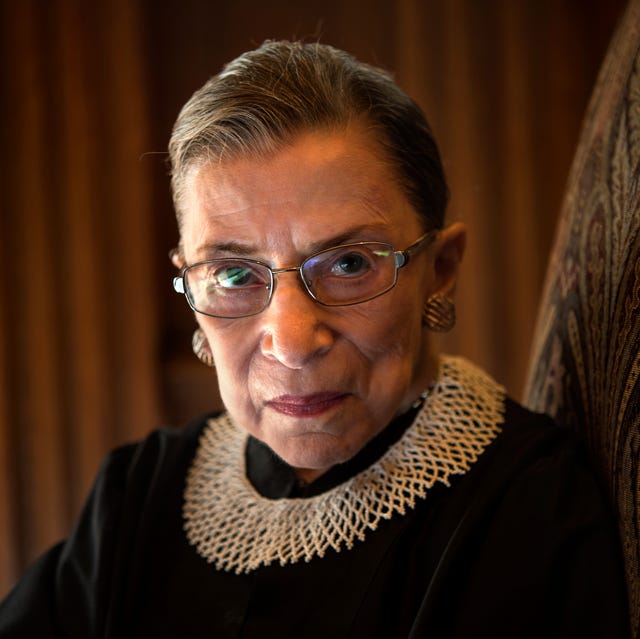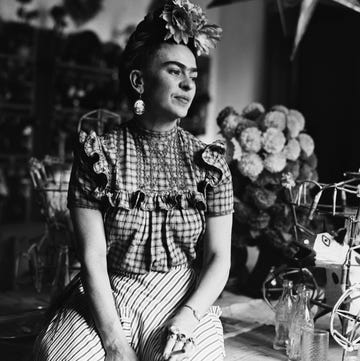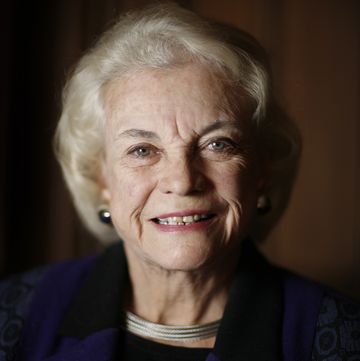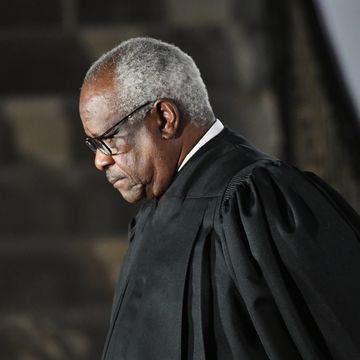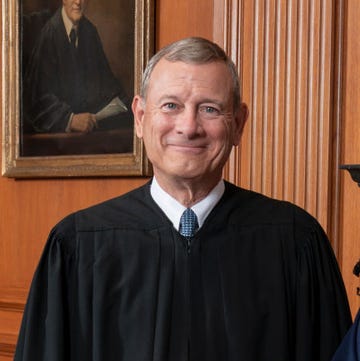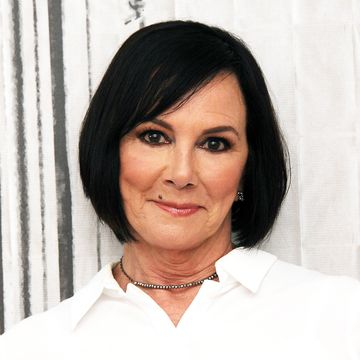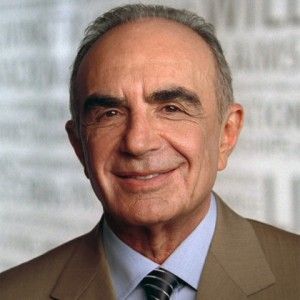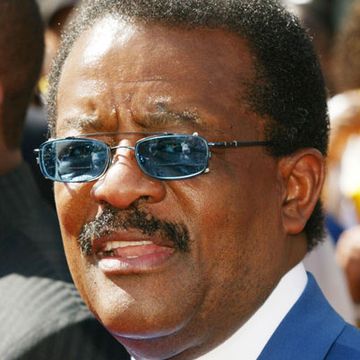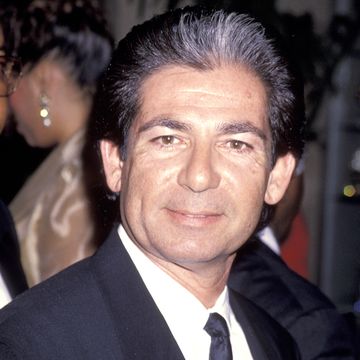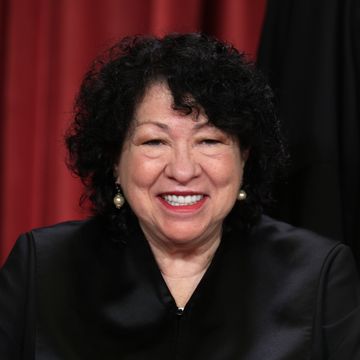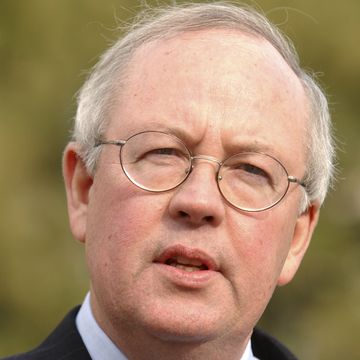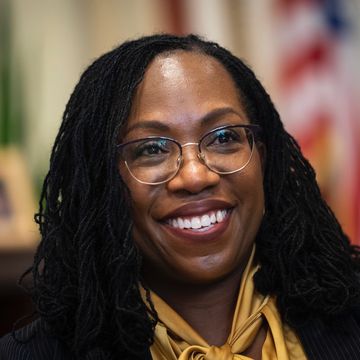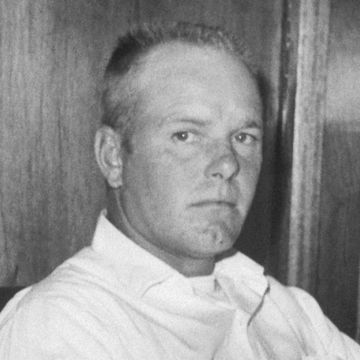1933-2020
Who Was Ruth Bader Ginsburg?
Ruth Bader Ginsburg graduated from Columbia Law School, going on to become a staunch courtroom advocate for the fair treatment of women and working with the ACLU’s Women’s Rights Project. She was appointed by President Jimmy Carter to the U.S. Court of Appeals in 1980 and appointed to the Supreme Court by President Bill Clinton in 1993.
Early Life and Education
Ginsburg was born Joan Ruth Bader on March 15, 1933, in Brooklyn, New York. The second daughter of Nathan and Celia Bader, she grew up in a low-income, working-class neighborhood in Brooklyn. Ginsburg's mother, who was a major influence in her life, taught her the value of independence and a good education.
Celia herself did not attend college, but instead worked in a garment factory to help pay for her brother's college education, an act of selflessness that forever impressed Ginsburg. At James Madison High School in Brooklyn, Ginsburg worked diligently and excelled in her studies. Sadly, her mother struggled with cancer throughout Ginsburg's high school years and died the day before Ginsburg's graduation.
Personal Life and Husband
Ginsburg earned her bachelor's degree in government from Cornell University in 1954, finishing first in her class. She married law student Martin D. Ginsburg that same year. The early years of their marriage were challenging, as their first child, Jane, was born shortly after Martin was drafted into the military in 1954. He served for two years and, after his discharge, the couple returned to Harvard, where Ginsburg also enrolled.
At Harvard, Ginsburg learned to balance life as a mother and her new role as a law student. She also encountered a very male-dominated, hostile environment, with only eight other females in her class of more than 500. The women were chided by the law school's dean for taking the places of qualified males. But Ginsburg pressed on and excelled academically, eventually becoming the first female member of the prestigious Harvard Law Review.
READ MORE: The Incredible Love Story of Ruth Bader and Marty Ginsburg
Arguing for Gender Equality
Then, another challenge: Martin contracted testicular cancer in 1956, requiring intensive treatment and rehabilitation. Ginsburg attended to her young daughter and convalescing husband, taking notes for him in classes while she continued her own law studies. Martin recovered, graduated from law school, and accepted a position at a New York law firm.
To join her husband in New York City, Ginsburg transferred to Columbia Law School, where she was elected to the school's law review. She graduated first in her class in 1959. Despite her outstanding academic record, however, Ginsburg continued to encounter gender discrimination while seeking employment after graduation.
After clerking for U.S. District Judge Edmund L. Palmieri (1959–61), Ginsburg taught at Rutgers University Law School (1963–72) and at Columbia (1972–80), where she became the school's first female tenured professor. During the 1970s, she also served as the director of the Women's Rights Project of the American Civil Liberties Union, for which she argued six landmark cases on gender equality before the U.S. Supreme Court.
However, Ginsburg also believed that the law was gender-blind and all groups were entitled to equal rights. One of the five cases she won before the Supreme Court involved a portion of the Social Security Act that favored women over men because it granted certain benefits to widows but not widowers.
On the Supreme Court
In 1980 President Carter appointed Ginsburg to the U.S. Court of Appeals for the District of Columbia. She served there until she was appointed to the U.S. Supreme Court in 1993 by President Clinton, selected to fill the seat vacated by Justice Byron White. President Clinton wanted a replacement with the intellect and political skills to deal with the more conservative members of the Court.
The Senate Judiciary Committee hearings were unusually friendly, despite frustration expressed by some senators over Ginsburg's evasive answers to hypothetical situations. Several expressed concern over how she could transition from social advocate to Supreme Court Justice. In the end, she was easily confirmed by the Senate, 96–3.
As a judge, Ginsburg favored caution, moderation and restraint. She was considered part of the Supreme Court's moderate-liberal bloc presenting a strong voice in favor of gender equality, the rights of workers and the separation of church and state. In 1996 Ginsburg wrote the Supreme Court's landmark decision in United States v. Virginia, which held that the state-supported Virginia Military Institute could not refuse to admit women. In 1999 she won the American Bar Association's Thurgood Marshall Award for her contributions to gender equality and civil rights.
'Bush v. Gore'
Despite her reputation for restrained writing, she gathered considerable attention for her dissenting opinion in the case of Bush v. Gore, which effectively decided the 2000 presidential election between George W. Bush and Al Gore. Objecting to the court's majority opinion favoring Bush, Ginsburg deliberately and subtly concluded her decision with the words, "I dissent" — a significant departure from the tradition of including the adverb "respectfully."
On June 27, 2010, Ginsburg's husband died of cancer. She described Martin as her biggest booster and "the only young man I dated who cared that I had a brain." Married for 56 years, the relationship between Ginsburg and Martin was said to differ from the norm: Martin was gregarious, loved to entertain and tell jokes while Ginsburg was serious, soft-spoken and shy.
Martin provided a reason for their successful union: "My wife doesn't give me any advice about cooking and I don't give her any advice about the law." A day after her husband's death, she was at work on the Court for the last day of the 2010 term.
Historic Rulings
In 2015, Ginsburg sided with the majority in two landmark Supreme Court rulings. On June 25th she was one of the six justices to uphold a critical component of the 2010 Affordable Care Act — often referred to as Obamacare — in King v. Burwell. The decision allows the federal government to continue providing subsidies to Americans who purchase health care through "exchanges," regardless of whether they are state or federally operated. The majority ruling, read by Chief Justice John Roberts, was a massive victory for President Barack Obama and made the Affordable Care Act difficult to undo. Conservative justices Clarence Thomas, Samuel Alito and Antonin Scalia were in dissent, with Scalia presenting a scathing dissenting opinion to the Court.
On June 26, the Supreme Court handed down its second historic decision in as many days, with a 5–4 majority ruling in Obergefell v. Hodges that made same-sex marriage legal in all 50 states. Ginsburg is considered to have been instrumental in the decision, having shown public support for the idea in past years by officiating same-sex marriages and by challenging arguments against it during the early proceedings of the case. She was joined in the majority by Justices Anthony Kennedy, Stephen Breyer, Sonia Sotomayor and Elena Kagan, with Roberts reading the dissenting opinion this time.
Recent Years
Ginsburg notably opposed the potential of a Donald Trump presidency in 2016, at one point calling him a "faker," before apologizing for publicly commenting on the campaign. In January 2018, after the president released a list of Supreme Court candidates in preparation for the looming retirement of elderly justices, the 84-year-old Ginsburg signaled she wasn't going anywhere by hiring a full slate of clerks through 2020.
The issue of her staying power loomed large later in the year when Justice Kennedy, who often sided with the court's liberal bloc, announced he was stepping down at the end of July, though Ginsburg at that time revealed that she hoped to stick around for at least five more years.
Book and 'RBG' Movie
In 2016 Ginsburg released My Own Words, a memoir filled with her writings that date as far back as her junior high school years. The book became a New York Times Best Seller.
In January 2018 Ginsburg appeared at the Sundance Film Festival to accompany the premiere of the documentary RBG. Touching on the #MeToo movement, she recalled an earlier time when she had to put up with the advances of a Cornell University professor. She also gave her seal of approval for Kate McKinnon’s sassy portrayal of her on Saturday Night Live, noting, "I would like to say 'Ginsburned' sometimes to my colleagues."
In an interview with Poppy Harlow at Columbia University in February, Ginsburg expanded on her thoughts regarding the #MeToo movement, saying its "staying power" would enable it to survive a backlash. She also defended the importance of a free press and an independent judiciary, both of which had been challenged during the Trump administration.
In April 2018, Ginsburg notched another career milestone by assigning a majority opinion for the first time in her 25 years with the court. The ruling for Sessions v. Dimaya, which drew attention for conservative Neil Gorsuch's decision to vote with his liberal colleagues, struck down a provision of the Immigration and Nationality Act that allowed the deportation of any foreign national convicted of a "crime of violence." Holding seniority among the majority, Ginsburg ultimately assigned the task of penning the opinion to Elena Kagan.
Health
Ginsburg endured several health scares after being appointed to the bench, undergoing surgery for colon cancer, pancreatic cancer and lung cancer. She was hospitalized in November 2018 after falling in her office and fracturing three ribs.
In May 2020, one day after the Court heard arguments via teleconference for the first time due to the coronavirus pandemic, it was announced that the senior justice had again been hospitalized, to undergo a nonsurgical treatment for a gallbladder infection.
In July 2020, Ginsburg revealed she was undergoing chemotherapy for a "recurrence of cancer" on her liver and was "yielding positive results."
Death
Ginsburg died on September 18, 2020, at her home in Washington, D.C., from complications of metastatic pancreatic cancer.
“Our nation has lost a jurist of historic stature,” Roberts said in a statement. “We at the Supreme Court have lost a cherished colleague. Today we mourn, but with confidence that future generations will remember Ruth Bader Ginsburg as we knew her — a tireless and resolute champion of justice.”
Ginsburg laid in state in the Capitol on September 25. She will be the first woman and second Supreme Court Justice to have this honor. Ginsburg also laid in repose at the Supreme Court on September 23 and 24.
QUICK FACTS
- Birth date: March 15, 1933
- Birth State: New York
- Birth City: Brooklyn
- Astrological Sign: Pisces
- Schools
- Harvard University
- James Madison High School
- Cornell University
- Columbia Law School
- Death date: September 18, 2020
- Death City: Washington, D.C.
- Death Country: United States
Fact Check: We strive for accuracy and fairness. If you see something that doesn’t look right, contact us!
QUOTES
- My mother told me two things constantly. One was to be a lady, and the other was to be independent.
- Women will only have true equality when men share with them the responsibility of bringing up the next generation.
- The state controlling a woman would mean denying her full autonomy and full equality.
- So that's the dissenter's hope: that they are writing not for today but for tomorrow.
- Feminism... I think the simplest explanation, and one that captures the idea, is a song that Marlo Thomas sang, 'Free to be You and Me.'
- If you're going to change things, you have to be with the people who hold the levers.
- I think unconscious bias is one of the hardest things to get at.
- If there was one decision I would overrule, it would be 'Citizens United.' I think the notion that we have all the democracy that money can buy strays so far from what our democracy is supposed to be.
- Fight for the things that you care about, but do it in a way that will lead others to join you.
The Biography.com staff is a team of people-obsessed and news-hungry editors with decades of collective experience. We have worked as daily newspaper reporters, major national magazine editors, and as editors-in-chief of regional media publications. Among our ranks are book authors and award-winning journalists. Our staff also works with freelance writers, researchers, and other contributors to produce the smart, compelling profiles and articles you see on our site. To meet the team, visit our About Us page: https://www.biography.com/about/a43602329/about-us
